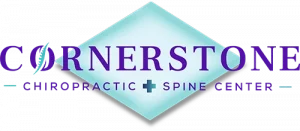Losing weight with the help of medications like Zepbound can feel like turning a page in your health journey. Your clothes start fitting better, your energy improves, and your confidence soars. At this uplifting moment in their wellness journey, however, many are dismayed at the sudden onset of back pain associated with their weight loss. This new commitment to health and wellness should have you feeling good. What’s going on?
Back pain after weight loss with medications like Zepbound, Ozempic, Mounjaro, and other treatments affects a number of patients who’ve made positive changes. The good news? Chiropractic care offers many patients relief from back pain associated with weight loss and provides a range of solutions for improved long-term well-being.
In this post, the experienced professionals at Cornerstone Chiropractic & Spine Center examine reasons behind back pain after weight loss with medications like Zepbound and how our Hiram chiropractor helps patients manage their pain.
What Causes Back Pain After Weight Loss With Medications Like Zepbound?
Weight loss is a significant achievement, but it can also lead to physical changes that affect your body’s alignment and mechanics. As the number on the scale decreases, your muscles, posture, and movement patterns begin to adjust, sometimes rapidly.
When weight loss occurs quickly, such as with the support of medications like Zepbound, these shifts may be quite pronounced, and the back pain associated with your weight loss may feel like it came out of nowhere. These new or unexpected discomforts can often be linked to lifestyle changes and adjustments in the musculoskeletal system. Here's what might be underlying your back pain:
1. Muscle Loss Along With Fat Loss
Medications like Zepbound, tirzepatide, and Wegovy help many patients lose weight, but the pounds that they’re shedding aren’t limited to their bodies’ fat stores. Depending upon their health status, level of activity, and diet, a patient may experience loss of muscle mass along with fat reduction. That includes the muscles that support the spine.
When those support muscles shrink or weaken, your back has to work harder to keep everything aligned. That strain can show up as lower back pain, soreness between your shoulder blades, or even tight hips and hamstrings. It’s like taking bricks out of a wall; eventually, something shifts in the overall structure.
2. Changes in Spinal Load and Posture
When your body shape changes, your posture often changes with it. For example, sometimes when someone achieves weight loss around their midsection with medications like Zepbound, their lower spine may not experience the same amount of forward pull that it's used to. While that’s a great change for overall health and longevity, it can throw your balance off in the short term.
Muscles, joints, and ligaments that were accustomed to one pattern suddenly have to adjust. Sometimes, that leads to tension or misalignment in your spine. If you’re experiencing back pain after weight loss with a medication like Zepbound or tirzepatide, it could be because you’re carrying yourself differently while your posture adjusts to your smaller frame.
3. Increased Physical Activity
A lot of people feel more energized and motivated to move once they start losing weight with medications like Zepbound. That’s fantastic, healthful change, but what if your body decides it's not quite ready for the extra workload?
If you're walking longer distances, standing more at work, or trying out a workout routine without easing into it, your back might pay the price. Back pain after weight loss with medications like Zepbound can result from increasing your exercise past the level your adjusting body is accustomed to.
4. Joint Sensitivity or Inflammation
Sometimes weight loss exposes pain that was already there and hidden under extra mass or inflammation. As your weight drops, pressure on your joints decreases, but your awareness of small imbalances or injuries can increase.
Plus, rapid weight loss can sometimes trigger changes in hormones and hydration levels, which may affect how your joints feel. A joint that was previously fine might now feel sore, achy, or stiff, especially if your body isn’t used to moving in new ways. These surprising connections could explain your back pain after weight loss with a variety of approaches, such as Zepbound, bariatric surgery, or even ketogenic diets.
How Can A Chiropractor Help With Back Pain After Zepbound
Chiropractors are trained to support patients through significant bodily transitions like weight loss, especially when muscles, joints, and posture can be significantly affected by rapid changes. Here's how chiropractic care makes a difference when you’re experiencing back pain after weight loss with medications like Zepbound, Ozempic, or Mounjaro:
Spinal Adjustments
This is what most people think of when they picture a chiropractic visit, and it’s one of the most effective ways to get real relief when you’re experiencing back pain associated with weight loss. After losing weight with medications like Zepbound, your joints might feel stiff or stuck, and adjustments help get everything moving the way it should.
A quick, targeted adjustment can ease pressure on nerves, relax tight muscles, and help you feel more balanced overall. This restores motion and gives your spine the support it needs to keep up with all the changes your body’s going through.
Advanced Spinal Decompression Therapy
If you're experiencing back pain after weight loss, advanced spinal decompression therapy (SDT) might offer effective, non-invasive relief. At Cornerstone Chiropractic, we offer this state-of-the-art, non-surgical treatment designed to gently relieve pressure on the spine. SDT helps create space between vertebrae, improving circulation to affected areas and supporting the body’s natural healing process.
Whether your back pain is due to muscle imbalances, postural shifts, or changes in spinal load, spinal decompression can be a safe and effective way to reduce pain and restore function, all without medication or surgery.
Soft Tissue Therapy
Back pain after weight loss with medications like Zepbound can also be caused by tight muscles, fascia, and connective tissues. Our experienced chiropractors use hands-on techniques like massage, trigger point release, or instrument-assisted tools to work out knots, reduce inflammation, and help muscles move freely again. Chiropractic massage therapy can be especially helpful if you’ve been more active or tense due to stress, workouts, or long hours sitting at a desk.
Posture Correction
Posture can change quickly when the body changes shape after losing weight with methods like Zepbound. A chiropractor can assess how you’re standing, sitting, and moving and then help correct any imbalances. That might include small tweaks in how you hold your shoulders, stand on your feet, or carry your weight when you walk. Fixing posture isn’t just about looking better; it helps relieve pressure on your spine and joints before pain has a chance to stick around.
Rehabilitation Exercises
Once you lose weight, you need muscle support more than ever. Chiropractors can guide you through simple rehab exercises that strengthen your core, glutes, back, and hips. These aren’t intense workouts, and they’re focused, low-impact movements designed to protect your spine and improve how you move.
Over time, these exercises help prevent future pain and build lasting strength, especially in areas that may have weakened during your weight loss with medications like Zepbound, Wegovy, and more.
Lifestyle and Nutrition Guidance
An experienced chiropractor always looks at the full picture. That might mean giving tips on hydration (which helps your discs and joints), advising on anti-inflammatory foods, or helping you build better sleep habits.
All of these things affect how your body recovers and handles physical stress. Some chiropractors may also work alongside other wellness providers like personal trainers, nutritionists, or physical therapists, to give you a more well-rounded recovery plan.
What to Expect From a Chiropractic Exam
If it’s your first time seeing a chiropractor, don’t stress. Most exams start with a conversation about what you’ve been feeling, when it started, and what your daily habits look like. From there, your chiropractor might check:
- Your posture while sitting and standing
- How your spine moves through certain motions
- Muscle strength and flexibility
- How your joints move (or don’t move)
You might also get a few gentle adjustments or try some mobility exercises right away. Most chiropractors aim to give you some relief after the very first visit. And they’ll build a plan based on your body, not a one-size-fits-all routine.
Contact a Chiropractor for Help with Your Back Pain After Weight Loss
If you’re dealing with back pain after losing weight with a treatment like Zepbound, your body may simply be adjusting to its new movement patterns, posture, and spinal alignment. While these changes are a natural part of the process, they can lead to discomfort that doesn’t always go away on its own. The good news? You don’t have to live with the discomfort.
Chiropractic care at Cornerstone Chiropractic is designed to help patients with back pain after weight loss reclaim their lives. Our team can reduce spinal pressure, improve mobility, and support your body’s transition so you can move forward comfortably and confidently.
Don’t wait for the pain to resolve on its own. Call us at (770) 439-7765 or submit an online contact form to schedule your appointment today. Let’s work together to make your wellness journey a true success!
Disclaimer: This content is intended for informational purposes only and does not constitute medical advice, diagnosis, or treatment. We are not indicating a direct or causal relationship between back pain and the use of Zepbound®, Mounjaro®, tirzepatide, or any weight loss medication. Instead, this article discusses how back pain may arise as part of the overall weight loss process, regardless of the approach taken. If you have questions or concerns about your medication or possible side effects, please consult your prescribing healthcare provider.






